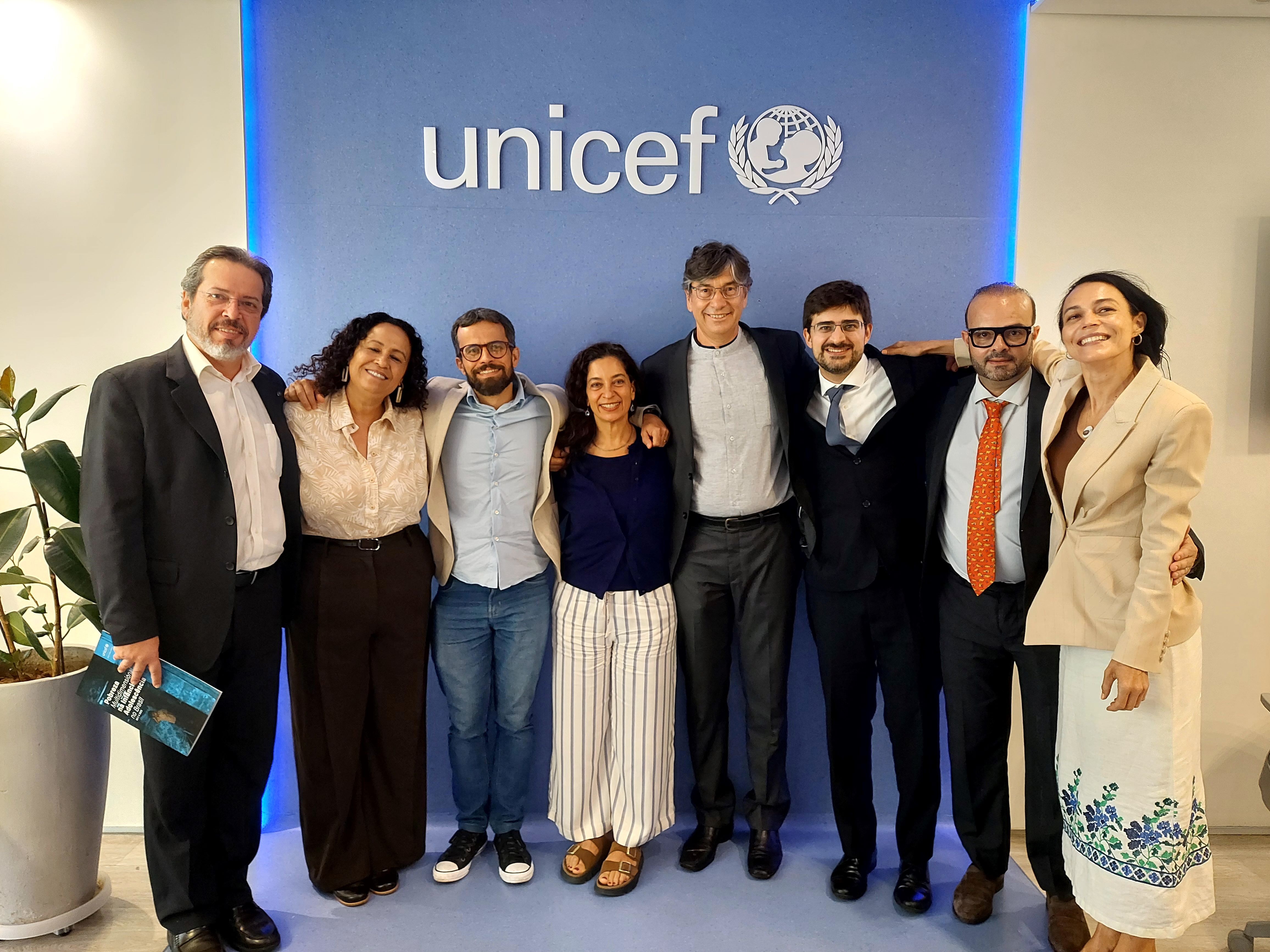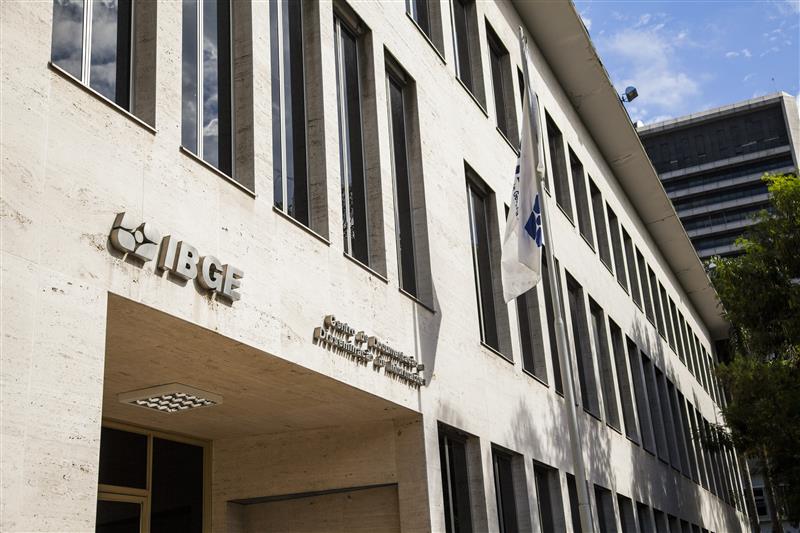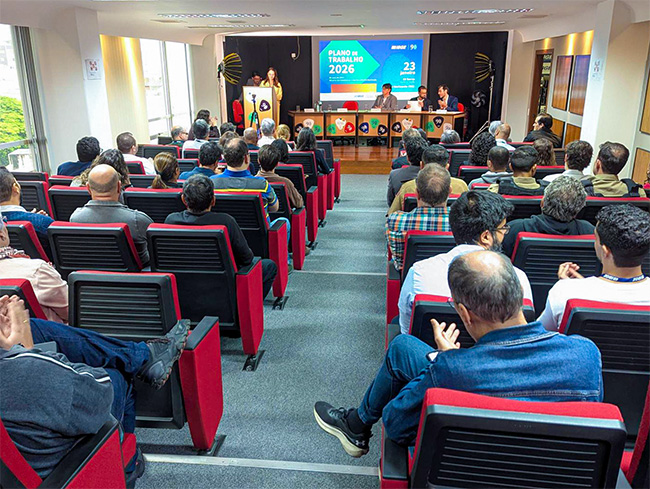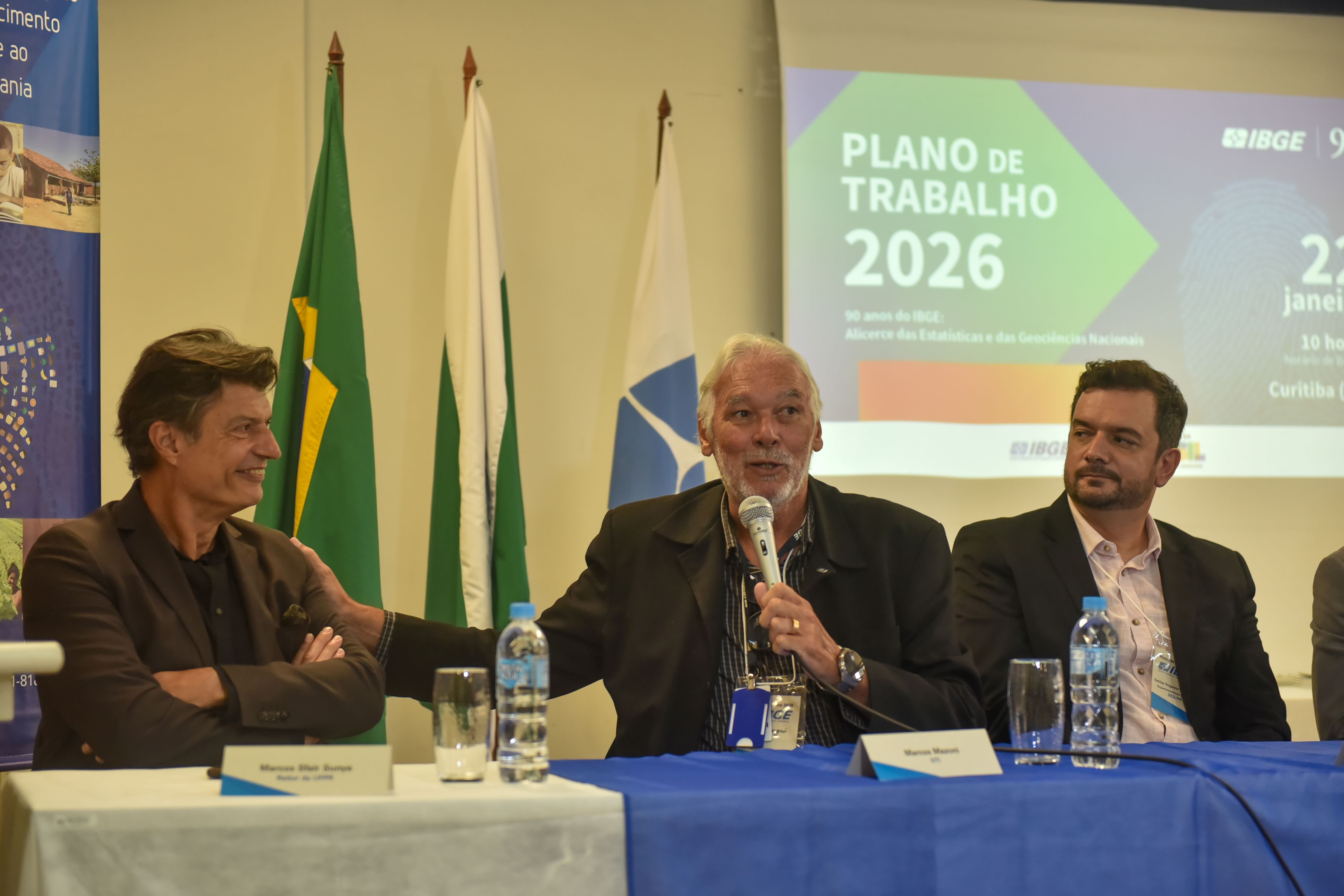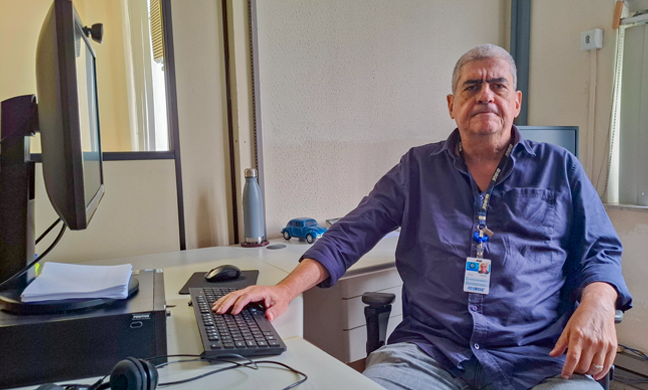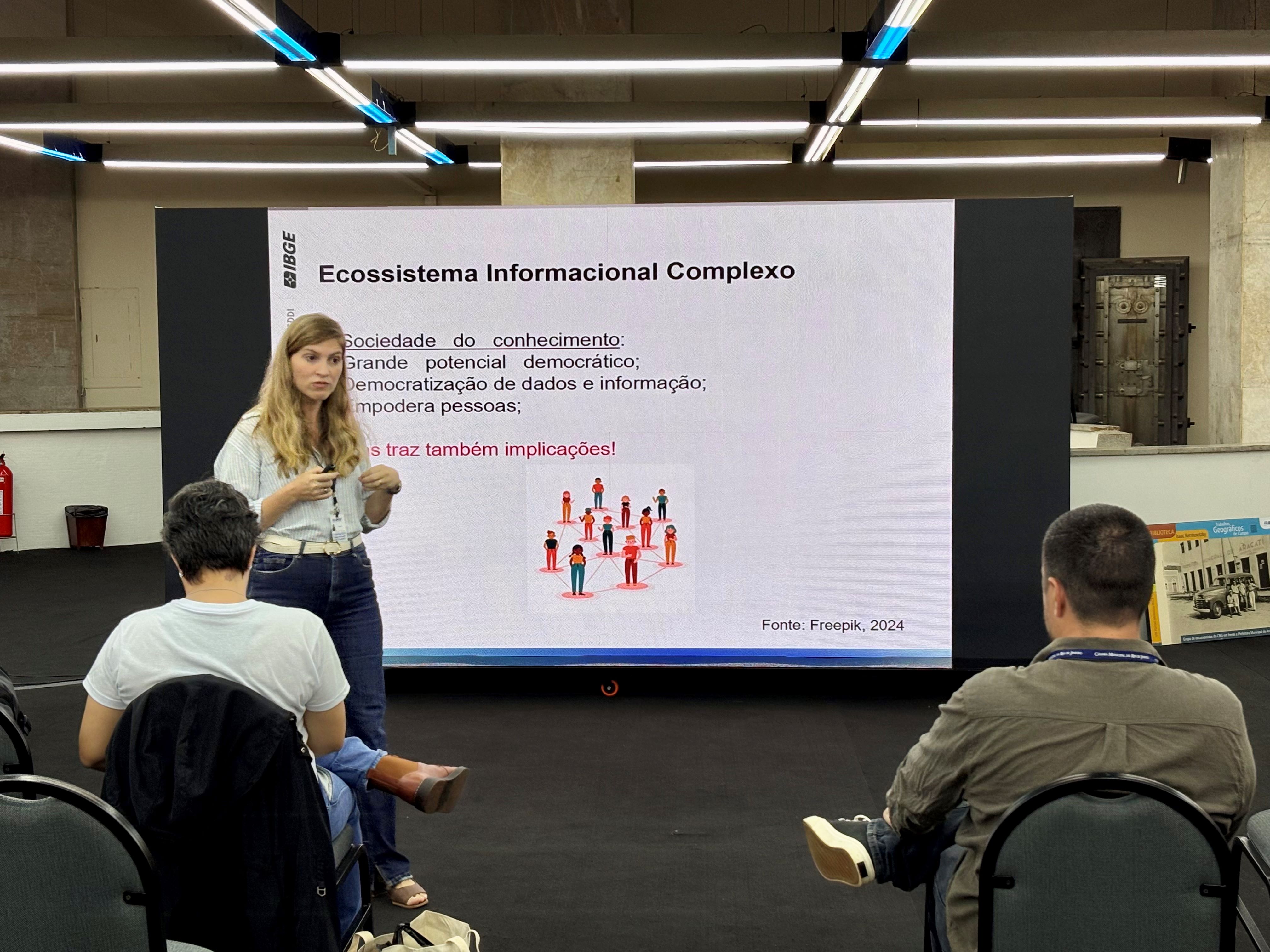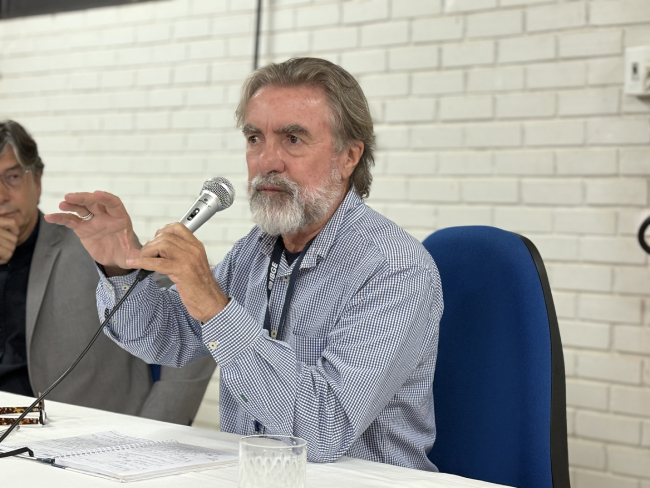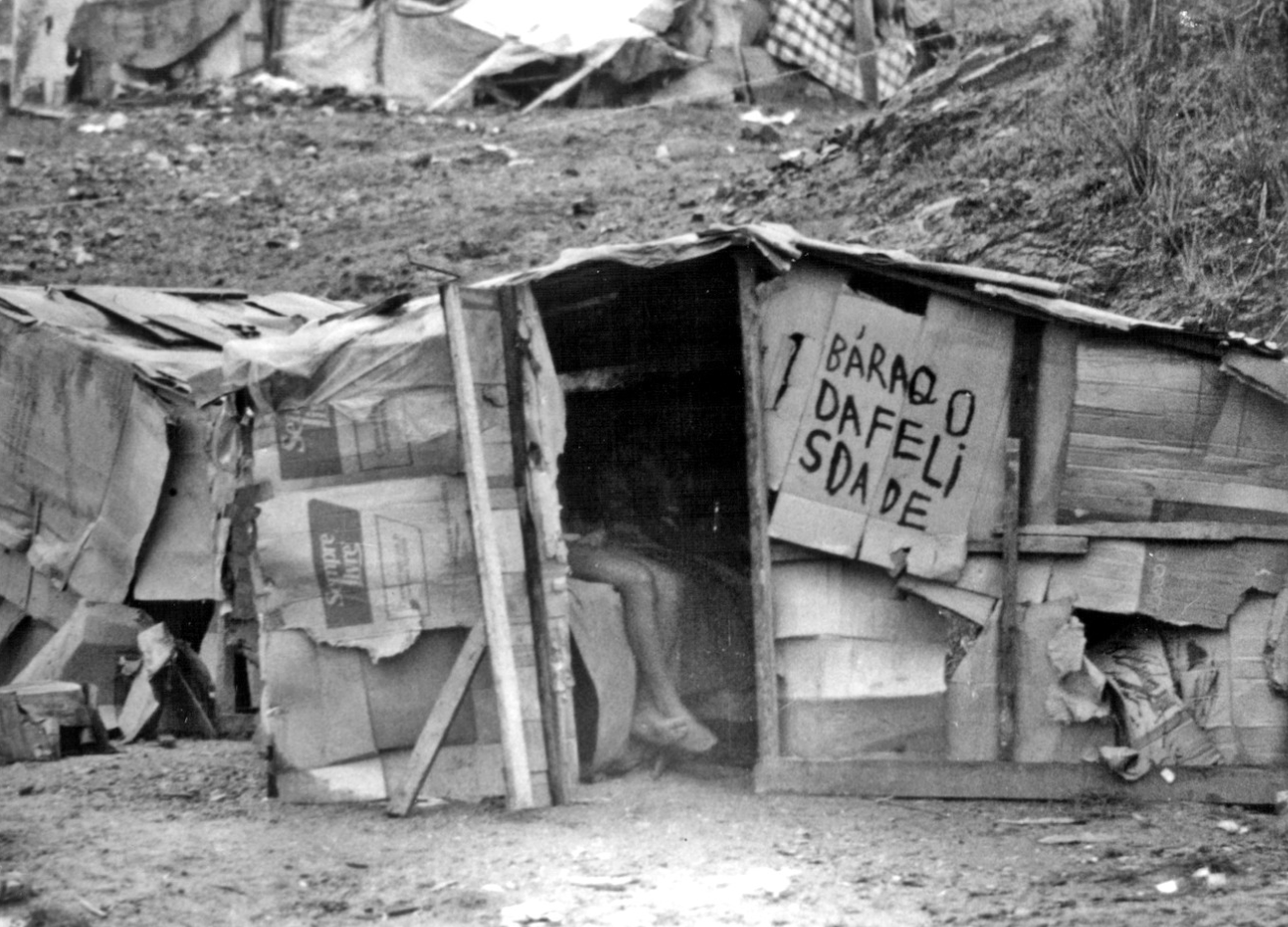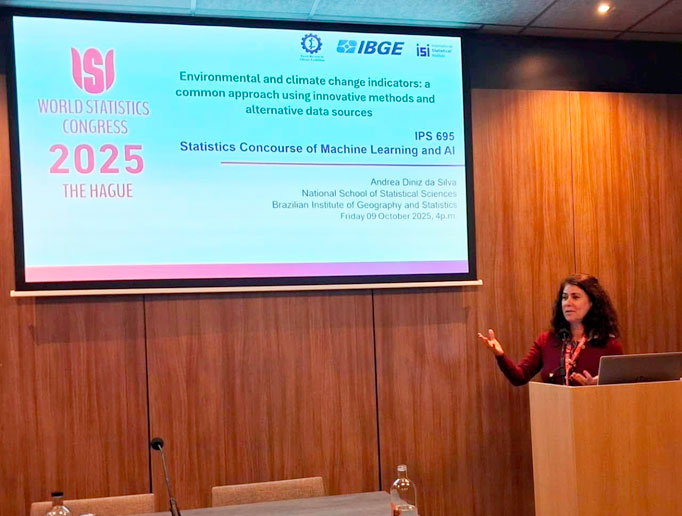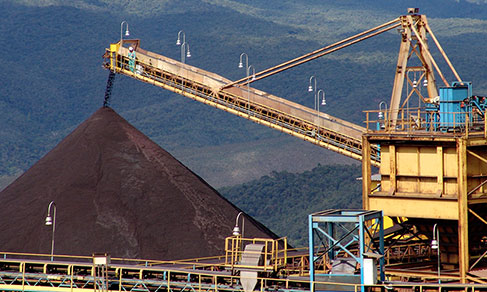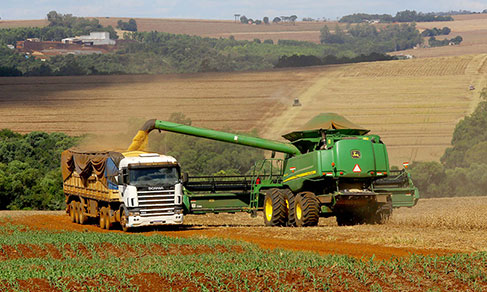IBGE publishes Letter of Brazil in the Digital Era for debate and support from data users and producers
August 09, 2024 11h29 AM | Last Updated: August 26, 2024 05h03 PM
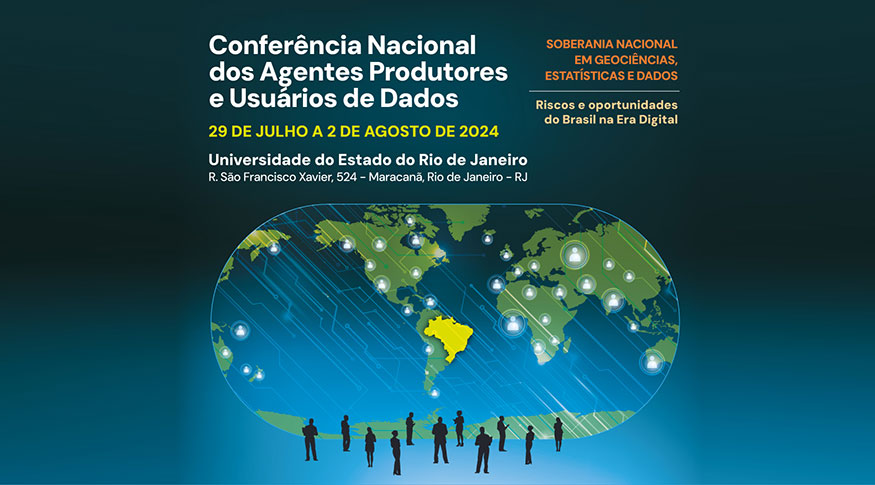
The Brazilian Institute of Geography and Statistics (IBGE) published the Letter of Brazil in the Digital Era on the website change.org (https://www.change.org/p/apoie-a-carta-brasil-na-era-digital), for discussion of its proposals and support from the national and international community of data users and producers.
The Letter was a product of the National Conference of Data Users and Producers, held from July 29 to August 2 by the IBGE, in partnership with the State University of Rio de Janeiro (UERJ), with an emphasis on the theme of data sovereignty and the consolidation of the National System in Geosciences, Statistics and Data, discussing the risks and opportunities for Brazil in the Digital Era.
After five days, more than 140 speakers, 350 representatives of technical agencies and entities and society, 100 hours of recorded debates, six panels and 23 working groups, the IBGE closed the Conference, with the participation of 600 technicians and three thousand registered participants, in addition to another five thousand, either in person or remotely, as panels were broadcast live through the IBGE Digital channel (ibge.gov.br).
The Conference brought together panel and group coordinators, gathering experts, representatives of transnational technology giants, public managers, public data companies, multilateral agencies and social movements, academics and students, and civil society organizations to discuss digital sovereignty and the consolidation of the National System of Geosciences, Statistics and Data, SINGED.
At the end of the Conference, the Letter of Brazil in the Digital Era was signed by the State University of Rio de Janeiro´s (UERJ) Dean, Gulnar Azevedo, by the President of the IBGE, Marcio Pochmann, as well as by the IBGE Board of Directors: Flávia Vinhaes Santos, Elizabeth Belo Hypolito, Ivone Lopes Batista, Marcos Vinicius Ferreira Mazoni, Paulo de Martino Jannuzzi and Jose Daniel Castro da Silva.
Therefore, the IBGE would like to ask the entire national and international community of data users and producers to show their support by signing the Letter of Brazil in the Digital Era, through the link https://www.change.org/p/apoie-a-carta-brasil-na-era-digital.
Read the full text of the Letter of Brazil in the Digital Era below:
IBGE 90 Years: Letter of Brazil in the Digital Era
Rio de Janeiro, August 2, 2024
The Brazilian Institute of Geography and Statistics (IBGE) and data producers and users, national and international, supported by the State University of Rio de Janeiro (UERJ), which hosted in its Maracanã Campus, in the city of Rio de Janeiro, the National Conference of Data Producers and Users, from July 29 to August 2, considering the theme digital sovereignty and the consolidation of the National System of Geosciences, Statistics and Data (SINGED) and their different implications, assert that:
1 - The Conference met the IBGE´s objective of discussing the context of the change from the Industrial Era to the Digital Era, in which Communication is present across all chains and sectors, creating companies larger than countries with an impact on the sovereignty of nations, without guaranteeing the confidentiality of personal information and of commercial trnasactions. Therefore, Brazil, through the IBGE and technical partners, aimed at contributing to discuss about a survey on the Digital Era, based on six axes: Communication infrastructure; Information production, dissemination and certification; Data sovereignty; Official data and copyright; Digital literacy and Capture of privacy.
2 - In order to constitute SINGED, a comprehensive action of literacy was identified for the national statistical cadres, as well as for users and producers, to understand the risks and potentialities of the new scenario and, especially, to take them to gather the classic methods with new data sources, provided in the Digital Era. A reflection on the Fundamental Principles of Official Statistics is welcome, for its advance towards to sharing responsibilities on information, data and respective methods under the scope of SINGED.
3 - Especially in the last ten years, the volume, variety and speed in the production of data configured an informational context usually called as Big Data. There is a multitude of new data "organically" produced and "materially" compilable by images of optical sensors distributed along cities, records of mobile phone calls, purchase ledgers of electronic commerce, personal interactions in social media, among others.
In this regard, having more data available that demand new techniques and patterns of treatment and qualification requires a paradigmatic change in the qualification of technical cadres of the different institutions that will integrate SINGED. Deterministic and probabilistic methods of Data Integration, Data Science models and Artificial Intelligence tools are the current technical knowledge key to produce more diverse statistics in thematic terms, territorially granular and more constantly updated.
4 - The effective operation of SINGED will only be possible with the advance in the statistical, geo-informational and data culture, involving, in every step, the civil society, so as it can also express its demands for information and data. SINGED´s governance requires identifying the recognition of interoprability as a central concept to be explored in the new data environment, including the different experiences with this theme in the federal government. It also required to look for forms of cooperation with the institutions network, either public or not, which have admittedly produced relevant and consistent information for managing public policies, socioeconomic studies and other subsidies for the society.
5 - SINGED´s governance requires the continuation and deepening of the debate, as the definition and communication of the statistical and geoscientific purposes of the system, as well as its composition and structure. Aiming at a democratic and inclusive participation, the governance should be anchored to a strategic collegium and thematic committees always aiming at getting closer to the society needs.
6 - Concerning legislation and norms, it is required to recognize and enhance existing classificiations, concepts and standards and making them compatible at national and international levels, as well as to consider principles and good practices in the scope of statistics and geosciences and guarantee effectiveness of the legislation to oblige informants to provide information to the System and to access administrative data and alternative data sources for statistical and geoscientific use.
7 - It is relevant to highlight the role of the geospatial information as an integrative structure for statistics and data, considering location as a common reference and the importance of the spatial identification of the environmental, economic, social and demographic dynamics in the territory.
8 - Under the budget and financial point of view, ways should be built to improve and optimize resources coupled with the other parts of the System, in order to advance towards data sovereignty. Redistributing wealth and combating the economic centralism of the proprietary platforms will only be possible through the construction of local cooperation platforms, with their own structures, based on free software, in order to safeguard our national sovereignty and our citizens´ data, through the integration of SINGED under the coordination of the IBGE, supported by all the Data Producers and Users gathered in this Conference
9 - Based on the reflections of data users and producers, by means of dialogues and on-site and remote debates, in five days of conference, with more than 100 speakers, more than 350 representatives from technical entities and offices and from society, with more than 100 hours of recorded debates, six roundtables and 23 working groups, the IBGE officers will develop proposals partly directed to the National Congress, since they require changes or the creation of a Digital Constitution; they will provide the Presidency of the Republic with an overview of the IBGE Dialogues 90 Years with a summary of the Conference and suggestions that can be made within the governmental structure, for a governance proposal based on pilots with offices and ministries, which, in a first moment, will require resources, yet also reducing the cost of the organization and operation of the collection, storage, dissemination and use of indicators and data; create committees from cross working groups carried out in the Conference; dialogue with international data offices, based on the debate of the structuring axes in public and private data, statistics and geosciences, always taking into account the national sovereignty.
Lastly, the IBGE thanks UERJ, on behalf of its dean, for the major support to carry out this Conference, expecting to create a center for youth indicators within UERJ to diagnose, plan and take action, so that this generation has the bases to compete for opportunities in the Digital Era, beginning with the combat against real and digital inequality, creating jobs and income from investments in innovation and knowledge.



